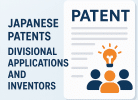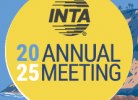In 2018 Tasuku Honjo, a professor at Kyoto Univeristy, was awarded a Nobel Prize along with other researchers for developments of cancer-fighting technologies. The protein Honjo found in immune cells, programmed death receptor 1 (PD-1), was found to be a means of fighting cancer effectively. Dr. Honjo arranged a contract with Ono Pharmaceuticals, and in 2003 they filed a patent application for his research, which turned into the valuable treatment drug Opdivo. [2]
Problems emerged after people realized how much Ono had made on the drug compared to what Honjo is being offered. Ono Pharmaceuticals ended up making huge profits not only on the sale of the drug but also in licensing to Bristol-Myers Squibb and a settlement with Merck. (Of course, it would have been difficult to foresee or account for these in the original contract.) Honjo was offered 0.75% of the sales for royalties, plus a small portion of licensing income from Ono Pharmaceuticals. [3]
Honjo further claims, reports the Nikkei Asia Review, that Ono Pharmaceuticals gave an inaccurate description of claims going into the patent and made a narrow claim for the gene that makes PD-1, instead of the whole use of the gene as he had been contemplating. Honjo’s lawyer jumped on that difference, saying the percentage of royalties that would go to an inventor in a similar situation for a use patent is much higher. [2]
Honjo is rejecting Ono Pharmaceutical’s offer of 2.6 billion yen, saying it is unfair. Last year he spoke after receiving the Nobel Prize that he thought pharmaceutical companies were not investing enough in future research by paying more back to researchers. [3] Honjo claims that Japanese corporations should be keeping up with global standards when it comes to collaboration with academia, implying higher returns for academic researchers. [1] Will Japanese researchers be motivated to partner with Japanese corporations? That remains to be seen.
* The information provided on this website is for informational purposes only and is not intended as legal advice.
** For questions or consultation, please contact us for more information.
Taro Yaguchi
Sources
[1] Jun ANDO, “特許対価、契約で大差 本庶氏26億円 大村氏200億円 問われる企業との 交渉力 [Patent valuation and contracts lead to huge gap: Mr. Honjo 2.6 billion yen, Mr. Omura 20 billion yen; questions about abilities to negotiate with corporations],” Nikkei Shimbun, April 12, 2019.
[2] Takefumi KAWAGUCHI and Tatsuro MIYAZUMI, “Nobel laureate demands higher cancer drug royalties from Ono Pharma,” Nikkei Asia Review, April 11, 2019.
[3] Shigeko SEGAWA, Web Ronza, “ノーベル賞の本庶さんが特許の対価を巡って怒る!がん治療薬「オプジーボ」成功のかげで深まっていた対立 [Mr. Honjo, Nobel laureate, upset about how his patent is valued! The conflict that emerged from the Opdivo cancer drug success]”






